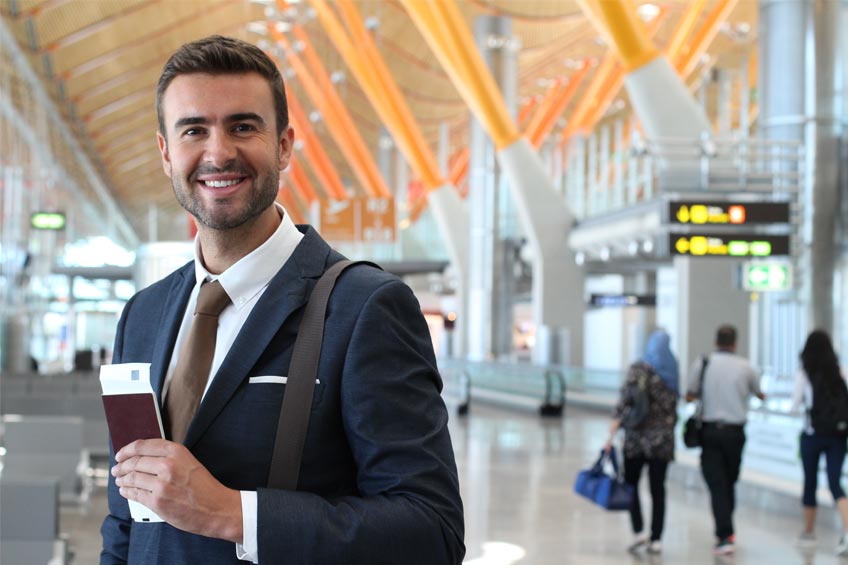Anyone non-US citizen who wants to work in the United States will need a work visa before they will be eligible to live and work here. However, the type of visa and individual eligibility can vary depending on your country of origin and the type of visa needed.
Knowing ahead of time what visa to apply for, what documentation you should expect to provide, and what the whole process looks like will make the whole process faster and easier.
Understanding The Work Visa
Work Visas are a little different from the other visas offered by the United States. They are meant for people who intend to come here specifically to work or receive training unavailable in your country of origin.
Work Visas are not meant for individuals looking to have a vacation in the United States or seeking permanent residency. Although, if your situation changes and you do decide you wish to apply for residency and citizenship after working here on visa there is a separate application for that as well.
You should also know that having a visa doesn’t guarantee entry to the United States. A visa simply provides proof that an Embassy or Console had determined that you meet all the entry requirements.
Types of Work Visas
There are many different types of work visas. Whether you are looking to find a new job once you arrive in the United States or your current job is transferring you to the United States, there is a specific work visa for you.
Here are some of the more common work visas:
H 2B – Temporary Work Visas (non-Agricultural)
This is for temporary work outside of the agricultural sector. Requirements for this visa include demonstrating that the work is temporary. It’s often used for seasonal work like ski resorts and other vacation destinations.
H 2A – Seasonal Agricultural Workers
The agricultural sector often needs seasonal workers to help with the high demand of harvest season. This visa does require that there is a shortage of domestic workers available. However, this visa is well documented, and there are lots of resources to help with eligibility requirements.
J Exchange Visitor Visas
The exchange visitor visa is designed for individuals participating in a work or school exchange program. These programs are limited duration, often geared toward training or cultural awareness. Usually, the institution organizing the exchange will help with the details of acquiring this visa.
U.S. Green Cards
Green Cards offer permanent residence in the United States. Skilled workers can acquire a green card after receiving a job offer, although there may be additional requirements proving there is a shortage in the field.
There is also a lottery program for Green Cards, which is not skill-dependent. However, not all countries are eligible every year, and less than 1% of all applicants are accepted each year.
Green cards are employment-based (EB) visas and are broken up in the 3 categories depending on educational attainment, skills, and other noteworthy achievements.
Some family members may be eligible to co-apply for green cards with you if you meet the requirements.
B 1 Business Visas
A slightly different visa is necessary for business professionals who need to take a business trip into the United States. Requirements include having a specified time frame for the trip and meeting the eligibility requirements for what a business trip can entail.
How to Apply
Regardless of what visa you apply for some aspects of the process will be the same.
You need to apply for the visa at the closest U.S. Embassy or Consulate to your place of residence. While it is possible to apply for a visa from a different Embassy or Consulate it is harder to get your application accepted.
How Long Does it Take?
Every visa is a little different, and every application timeline is different as well. Expect a waiting period, usually at least a couple weeks, before your appointment.
You should try to get your visa well in advance of when you need it. Even after you turn in the initial paperwork you may be asked to provide additional documentation or to come in for interviews to go over your application.
Don’t worry if you are asked for additional documentation, it may be a simple matter of needing to confirm some details or getting a better sense of your future work plans.
That said, expect it to take 3-4 months to get everything put together and to get an answer from the Embassy or Consulate.
What Should I Provide
Every visa is a little different, and all will require that you fill out some visa-specific forms. However, you should expect to provide proof of citizenship, your current address, and employment, if applicable, as well as any records of your education.
Some visas, particularly temporary work visas, may also ask for information about family you have in your country of residence, properties, and even future plans.
In general, the more information you can provide the better. Answer any questions fully and honestly.
If you have any concerns about the process or are worried about your eligibility, it’s a good idea to contact a professional to consult with you about your case.
Beeraj Patel, Esq.
Latest posts by Beeraj Patel, Esq. (see all)
- Impact of Life Changes on Green Card Applications - June 16, 2025
- Common K1 Visa Criminal Background Issues - June 2, 2025
- Does Social Media Have an Impact on Your K1 Visa Application? - May 19, 2025
